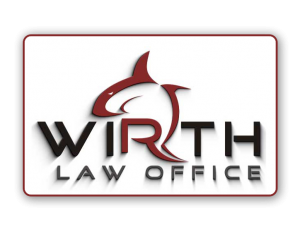A Car Note Is a Secured Debt
Video Transcribed: Hello, this is Edward Kelley I am a Bankruptcy Attorney Tulsa, I am going to talk to you about bankruptcy today. And I think today we’re going to answer the question of what debts can I get rid of in bankruptcy and which ones can I not get rid of?
 So I guess the easy way to talk about that would be what can’t you get rid of because you can get rid of almost anything. So a term you’ll hear a lot in bankruptcy is unsecured versus secured debt. So that simply means is there collateral?
So I guess the easy way to talk about that would be what can’t you get rid of because you can get rid of almost anything. So a term you’ll hear a lot in bankruptcy is unsecured versus secured debt. So that simply means is there collateral?
A car note is a secured debt. If you don’t pay it, they get to have the car. Bankruptcy doesn’t, with some exceptions, change that. So a credit card would be an unsecured debt. There’s no collateral. In bankruptcy, that just goes away or is paid in a 13, whatever you’re able to, not what you owe.
Secured debt, basically you can divide it up. So if I owe 10,000 on my car that’s worth 5,000, I’ve got a 5,000 secured debt and a 5,000 unsecured debt, if you follow me. But the long and short is whoever you owe on that car, they are entitled to that car.
So either you’re going to surrender that, which you can do in bankruptcy, and then everything becomes unsecured, and probably goes away, or you can keep it and pay in a 13, sometimes just the value of the vehicle. Sometimes the whole thing you all, regardless of the value. We’ll talk about that. That’s a little more complicated. We’ll talk about that in another video.
So unsecured, no problem. Secured’s no problem, as long as you give back the collateral. But what can’t you get rid of? Well, criminal penalties, court fines. There are a few civil fines you can do. We’ll talk about that in another video, but most of your criminal charge-related restitution, fines, court costs, things like that, you can’t get rid of.
Student loans, if they are properly federally backed student loans, can’t do it. The federal government’s protected itself on that one. Since the bankruptcy process is a federal process too, they just basically say, “You’re stuck with those.”
Child support, a big no-no. Can’t ever get rid of that for obvious reasons, as it should be. And if you have debts that were created fraudulently… it’s a little difficult to prove that… but those can be what’s called non-dischargeable, meaning that you can’t get rid of them.
And certain attorney fees in family law cases, custody, things that involve child support, kind of an extension of that, and a few other categories. So just be aware, these are things that you can’t get rid of.
Now the last one we’ll talk about is tax debt. So you can, and you can’t. So any tax debt created within the last three years, and by creating, I mean file. So as of now, 2018 forward, you can’t get rid of, period. And you have to pay for it. However, anything more than three years old, completely dischargeable. Basically becomes an unsecured debt.
So the important thing to remember though is the three years is from when it was filed. So if you didn’t file a return in 1867 and you just file is now in 2021, you can’t get rid of it until 2024. So it’s three years from the time you filed the taxes, but that can be a powerful deal.
So sometimes you don’t do a bankruptcy now, you might do it in a year and it’s past the three years and there’s tax debt, you can get rid of. So that’s kind of an overview of debts you can get rid of in bankruptcy.



